Contents
- 🥦 Understanding Nutrition in Illness: What Your Body Needs to Heal 🌿🤒
- 🌿 The Importance of Vitamins, Minerals & Hydration in Recovery 💧🥗
- 🥣 Best Foods for Recovery: What to Eat When You’re Healing 🌿🍗
- 🥩 Lean Proteins for Healing: Fueling Recovery with Essential Nutrients 💪🍽️
- 🩺 Dietary Considerations for Specific Illnesses: What to Eat for Targeted Recovery 🎯🥣
- 🏥 Post-Surgery Nutrition: Supporting Healing with the Right Foods 🥗🔧
When illness strikes, our bodies crave comfort, warmth, and nourishment. But beyond simply soothing symptoms, the foods we choose during sickness can actually play a powerful role in speeding up recovery and supporting the immune system. 🌿💪
While it’s tempting to reach for familiar comfort foods, making smart, nutrient-rich choices can provide your body with the energy, hydration, and vitamins it needs to heal faster. 🍎🥩🍯
For example:
- Chicken soup offers hydration, electrolytes, and soothing warmth for sore throats and congestion. 🍜
- Garlic contains natural antimicrobial properties that may help fight infection. 🧄
- Hot tea with honey can calm a cough while keeping you hydrated. 🍵🍯
By incorporating a variety of immune-boosting, easily digestible, and nutrient-packed foods, you can help your body fight off illness more effectively. 🍊🥬
Whether you’re battling a cold, the flu, or simply feeling under the weather, choosing the right meals can transform a difficult time into an opportunity for healing and self-care. 🌸✨
In this guide, we’ll explore some of the best foods to eat when you’re sick — from gut-soothing bananas to protein-rich chicken and beans — so you can build a healing meal plan that supports your recovery every step of the way. 🚀
🥦 Understanding Nutrition in Illness: What Your Body Needs to Heal 🌿🤒
When you’re sick, your body works overtime to fight off infection and repair itself. During this critical time, proper nutrition becomes one of the most powerful tools for recovery. 🩺✨ Consuming the right balance of macronutrients, vitamins, minerals, and fluids can help speed healing, strengthen your immune response, and restore your energy levels. 🌞
🥩 The Role of Macronutrients in Recovery
Macronutrients — proteins, fats, and carbohydrates — are the foundation of your body’s healing process. Each plays a unique and essential role when you’re under the weather.
🧬 Protein: Repair and Immune Support
Protein is especially crucial during illness. 💪 It helps:
- Repair damaged tissues 🩹
- Build antibodies that fight infections 🦠
- Support muscle maintenance during periods of inactivity 🛌
Excellent protein-rich foods include:
- 🍗 Chicken
- 🐟 Fish (like salmon or tuna)
- 🥚 Eggs
- 🫘 Beans and lentils
- 🧀 Low-fat dairy products
Including enough protein daily ensures your body has the building blocks it needs to recover efficiently.
🥑 Healthy Fats: Nutrient Absorption & Hormonal Balance
Healthy fats help your body absorb fat-soluble vitamins (A, D, E, K), support hormone production, and reduce inflammation — all critical during illness. 🌿
Nutritious fat sources include:
- 🥑 Avocados
- 🥜 Nuts and seeds
- 🫒 Olive oil
- 🐟 Fatty fish rich in omega-3s
These fats not only aid in recovery but also add flavor and satisfaction to your meals. 🍽️
🍞 Carbohydrates: Energy for a Healing Body
When you’re sick, your body needs energy to fuel its immune response and healing processes. Carbohydrates provide that quick, accessible energy while also delivering essential nutrients and fiber. 🌾
Choose nutrient-dense carbohydrate sources like:
- 🍚 Whole grains (brown rice, oatmeal, quinoa)
- 🍎 Fruits (bananas, apples, berries)
- 🥕 Vegetables (sweet potatoes, leafy greens, carrots)
Fiber from these sources can also support healthy digestion, which may be disrupted during illness. 🧻
✅ In short: Balancing these macronutrients gives your body the tools it needs to fight illness, repair tissues, and regain strength faster. 🌟
🌿 The Importance of Vitamins, Minerals & Hydration in Recovery 💧🥗
When you’re battling an illness, your body’s need for key vitamins, minerals, and fluids becomes even more critical. These nutrients work behind the scenes to boost immune function, repair tissues, reduce inflammation, and keep every system running smoothly while your body heals. 🛌✨
🍊 Essential Vitamins & Minerals for Healing
A well-rounded diet rich in micronutrients can significantly enhance your body’s natural defenses. Let’s break down some of the most important ones:
🍋 Vitamin C: Immune Booster
Vitamin C is a powerful antioxidant that supports immune system function, helps reduce inflammation, and may shorten the duration of certain illnesses.
Best sources include:
- 🍊 Citrus fruits (oranges, grapefruits, lemons)
- 🫑 Bell peppers
- 🥦 Broccoli
- 🍓 Strawberries
- 🥬 Leafy greens
🌞 Vitamin D: Immune Regulation
Vitamin D plays a key role in regulating the immune response and reducing inflammation. Since your body produces it when exposed to sunlight, it’s often called the “sunshine vitamin.”
Sources include:
- ☀️ Safe sun exposure
- 🐟 Fatty fish (salmon, mackerel)
- 🧀 Fortified dairy products
- 🍳 Eggs
- Fortified cereals
🦪 Zinc: Wound Healing & Immunity
Zinc is crucial for:
- Immune cell function 🛡️
- Wound healing 🩹
- Reducing inflammation 🔥
Top food sources include:
- 🥩 Red meat
- 🦐 Shellfish
- 🫘 Legumes (chickpeas, lentils, beans)
- 🌰 Nuts and seeds
🩸 Iron: Oxygen Transport
Iron helps carry oxygen through the bloodstream, ensuring your cells receive the energy they need during recovery.
Excellent sources are:
- 🥩 Red meat
- 🐓 Poultry
- 🫘 Beans and lentils
- 🌿 Spinach and other leafy greens
💡 Pro Tip: Pair iron-rich foods with vitamin C sources to boost absorption.
💧 Hydration Essentials: The Foundation of Recovery
Proper hydration is just as important as nutrient intake when you’re sick. Fluids keep your body functioning optimally by:
- Supporting digestion and nutrient absorption 🥣
- Regulating body temperature 🌡️
- Maintaining electrolyte balance ⚖️
- Aiding in detoxification and waste removal 🚰
Best Hydrating Options:
- 💧 Plain water (always the #1 choice)
- 🍲 Clear broths and soups
- 🍵 Herbal teas (like ginger, chamomile, or peppermint)
- 🥤 Electrolyte-rich drinks (especially if vomiting, diarrhea, or fever is present)
💡 Pro Tip: Avoid sugary, caffeinated, or carbonated drinks, as they can sometimes worsen dehydration.
Watch Out for Dehydration Signs:
- Dry mouth 👄
- Fatigue 🛏️
- Dizziness 🔄
- Dark urine 🚻
Staying consistently hydrated can significantly speed up your recovery and make you feel stronger sooner. 🩺💧
🥣 Best Foods for Recovery: What to Eat When You’re Healing 🌿🍗
When you’re on the mend after an illness, choosing the right foods can make a significant difference in how quickly you regain your strength. The ideal recovery diet provides the body with immune support, easy-to-digest nutrients, and plenty of energy to fuel the healing process. 🛌⚡
🍜 Broths and Soups: The Ultimate Healing Meal
Broths and soups are time-tested comfort foods that offer both nourishment and hydration — two key factors in recovery. The warm, soothing liquids can:
- Ease sore throats 🤧
- Relieve congestion 🫁
- Provide essential nutrients without overwhelming the digestive system 🍲
Why Chicken Soup Works:
- 🍗 Chicken: Supplies high-quality protein necessary for tissue repair and immune function.
- 🥕 Carrots and celery: Rich in vitamins A and C, which support immune health.
- 🧄 Garlic: Contains natural antimicrobial compounds that may help fight infections.
Homemade soups are ideal because you can control the ingredients and add nutrient-rich vegetables, herbs, and spices that support recovery. 🌿
Pro Tip: Add fresh ginger or turmeric to your broth for additional anti-inflammatory benefits. 🌱
🍌 Soft Fruits and Vegetables: Gentle Yet Nutritious
When you’re recovering — especially from gastrointestinal issues — soft fruits and vegetables offer a gentle way to get vital nutrients without irritating the stomach. They provide:
- Dietary fiber for digestion 🚽
- Vitamins and minerals for immune support 🌞
- Electrolytes to replace what’s lost during illness ⚖️
Top Soft Produce for Recovery:
- 🍌 Bananas: Easy to digest and high in potassium, which helps replenish electrolytes.
- 🍎 Applesauce: Provides simple carbohydrates for quick energy and is gentle on the stomach.
- 🥕 Steamed carrots: Soft and rich in beta-carotene (vitamin A precursor) for immune support.
- 🥑 Avocados: Loaded with healthy fats, fiber, and a variety of vitamins and minerals.
- 🎃 Pumpkin: High in fiber, vitamins A and C, and easy to digest when cooked or pureed.
🌟 Why These Foods Work So Well:
- They’re soft and easy to eat, even with a sore throat or upset stomach.
- They help restore lost nutrients after fever, vomiting, or diarrhea.
- They promote gut health, which plays a vital role in immune recovery.
✅ In short: Focusing on broths, soups, and soft nutrient-dense produce gives your body the gentle support it needs to heal faster and feel stronger. 🌼
🥩 Lean Proteins for Healing: Fueling Recovery with Essential Nutrients 💪🍽️
When your body is working hard to fight off illness and repair itself, lean proteins become an essential part of your recovery nutrition. 🛌✨ They provide the building blocks (amino acids) necessary for tissue repair, immune function, and maintaining muscle strength — even when your energy levels are low. 🔋
🔬 Why Protein Is Crucial During Recovery
- Supports tissue repair and wound healing 🩹
- Strengthens the immune system 🛡️
- Helps maintain muscle mass during periods of reduced activity 🏋️
- Provides steady energy to fuel the healing process ⚡
Even if appetite is reduced, including protein in small, frequent meals can help the body recover more efficiently.
🍗 Best Lean Protein Sources for Recovery
🐔 Chicken & Turkey
- High in protein and low in fat
- Easy to digest, especially when grilled, baked, or poached
- Versatile and can be added to soups, salads, and light meals
🐟 Fish (especially Fatty Fish like Salmon)
- Excellent source of high-quality protein
- Rich in omega-3 fatty acids, which have anti-inflammatory properties that may help reduce swelling and inflammation during illness 🔥
- Provides vitamin D, which supports immune function 🌞
🥩 Lean Cuts of Beef
- Provides iron, which is crucial for oxygen transport during recovery 🩸
- Supplies zinc and B vitamins that support healing and energy metabolism
🥚 Eggs
- Contain all nine essential amino acids, making them a complete protein source 🍳
- Soft and easy to prepare, making them ideal for days when appetite is low
🫘 Plant-Based Protein Options
- Beans, lentils, tofu, and tempeh offer excellent vegetarian protein sources
- Also provide fiber, iron, and other important nutrients 🌿
🍽️ Easy Ways to Include Lean Protein During Illness
- Add shredded chicken to broths and soups
- Prepare soft scrambled eggs for a gentle, protein-rich meal
- Bake or grill fish with light seasonings for easy digestion
- Blend tofu or protein-rich yogurt into smoothies for an easy-to-consume option
✅ In short: Prioritizing lean protein sources gives your body the fuel it needs to heal efficiently, maintain strength, and recover faster — even when your appetite is limited. 🌱
🩺 Dietary Considerations for Specific Illnesses: What to Eat for Targeted Recovery 🎯🥣
Not all illnesses affect the body the same way — and neither should your nutrition. Tailoring your diet to match your symptoms can help ease discomfort, speed up recovery, and give your body exactly what it needs to heal. 🌿
Let’s explore some of the best food choices for two common categories of illness: cold and flu and digestive issues.
🤧 Cold and Flu: Nourishing the Immune System & Easing Symptoms
When battling a cold or flu, the body needs plenty of fluids and nutrient-dense foods to support immune function, reduce inflammation, and relieve uncomfortable symptoms like sore throat, congestion, and fatigue. 🩺💤
🔑 Key Dietary Focus:
- Hydration: Clear liquids are essential to replace fluids lost from fever or congestion.
- Immune support: Vitamins, antioxidants, and minerals can strengthen the body’s defenses.
- Soothing foods: Warm, soft textures can comfort sore throats and ease digestion.
✅ Recommended Foods:
- 🍜 Chicken soup: A classic remedy that provides protein, electrolytes, and hydration. The steam can also help relieve nasal congestion.
- 🍊 Citrus fruits (oranges, grapefruits, lemons): High in vitamin C, which may help boost immune function.
- 🍯 Honey: Known for its throat-soothing properties and ability to calm coughing.
- 🍓 Berries and leafy greens: Loaded with antioxidants that support the body’s fight against infection.
- 🍵 Herbal teas (ginger, chamomile, peppermint): Provide hydration and natural soothing effects.
❌ Foods to Avoid:
- Caffeinated or sugary drinks that may dehydrate.
- Dairy (for some), if it worsens congestion.
🤢 Digestive Issues: Gentle Foods for an Upset Stomach
Nausea, diarrhea, and stomach upset require a bland, easy-to-digest diet that minimizes irritation while replenishing lost nutrients and fluids. ⚖️
🔑 Key Dietary Focus:
- Simple, low-fiber foods: Gentle on the digestive tract.
- Electrolyte replacement: Replenishes minerals lost through diarrhea or vomiting.
- Small, frequent meals: Easier for a sensitive stomach to handle.
✅ Recommended Foods (often part of the BRAT diet):
- 🍌 Bananas: Soft, easily digestible, and high in potassium.
- 🍚 White rice: Provides energy without straining digestion.
- 🍏 Applesauce: Mild, soothing, and contains pectin, which can help with diarrhea.
- 🍞 Toast or plain crackers: Gentle and easy to tolerate.
❌ Foods to Avoid:
- Greasy or fried foods 🍟
- Spicy dishes 🌶️
- High-sugar desserts 🍰
- Acidic or heavily seasoned meals
✅ In short: Listening to your body and adjusting your food choices based on your specific illness can not only ease symptoms but also promote faster healing and greater comfort. 🌼
🏥 Post-Surgery Nutrition: Supporting Healing with the Right Foods 🥗🔧
After surgery, your body enters a high-demand state, using extra energy and nutrients to repair tissues, fight inflammation, and restore strength. Eating the right foods during this period can dramatically improve your healing process, reduce complications, and help you feel stronger sooner. 💪✨
🔑 Why Nutrition Is So Important After Surgery
- Supports tissue repair and wound healing 🩹
- Reduces inflammation 🔥
- Maintains immune function 🛡️
- Helps prevent constipation from medications and inactivity 🚽
- Restores lost strength and energy ⚡
Even when appetite may be reduced, focusing on nutrient-dense, easy-to-digest foods ensures your body has the resources it needs to recover.
🥩 Recommended Foods for Post-Surgery Recovery
🐔 Lean Meats: High-Quality Protein for Tissue Repair
- Chicken and fish offer complete proteins with all essential amino acids, supporting wound healing, muscle repair, and immune response.
- Fatty fish like salmon provide additional anti-inflammatory benefits due to their omega-3 content 🐟.
🌿 Legumes and Beans: Plant-Based Power
- Beans, lentils, and chickpeas are excellent plant-based protein sources.
- Also rich in fiber, they promote digestive regularity — a common concern after surgery due to pain medications and inactivity. 🫘
🌾 Whole Grains: Gentle Energy and Digestive Support
- Brown rice, quinoa, oatmeal, and whole grain bread offer steady energy through complex carbohydrates.
- Their fiber content helps maintain healthy digestion and prevent constipation.
🍳 Other Nutrient-Dense Options:
- Eggs: Easy to digest and loaded with protein and vital nutrients.
- Dairy or dairy alternatives: Offer protein, calcium, and probiotics for gut health.
- Fruits and vegetables: Provide essential vitamins, minerals, and antioxidants to support overall healing.
💧 Hydration: Essential for Every Stage of Recovery
Staying hydrated is crucial post-surgery, as it:
- Aids circulation and nutrient transport 🩸
- Helps flush out toxins and medications 🧪
- Supports digestion and prevents constipation 🥤
Best options include:
- Water 💧
- Broths 🍲
- Herbal teas 🍵
- Electrolyte solutions, if recommended by your healthcare provider ⚖️
🥄 Gentle Eating Tips:
- Start with smaller, more frequent meals to avoid overwhelming your digestive system.
- Choose soft, easily digestible foods in the first days after surgery.
- Gradually reintroduce more complex foods as tolerated.
✅ In short: Post-surgery nutrition is all about providing the right balance of protein, fiber, vitamins, and fluids to help your body heal efficiently and comfortably. 🌼


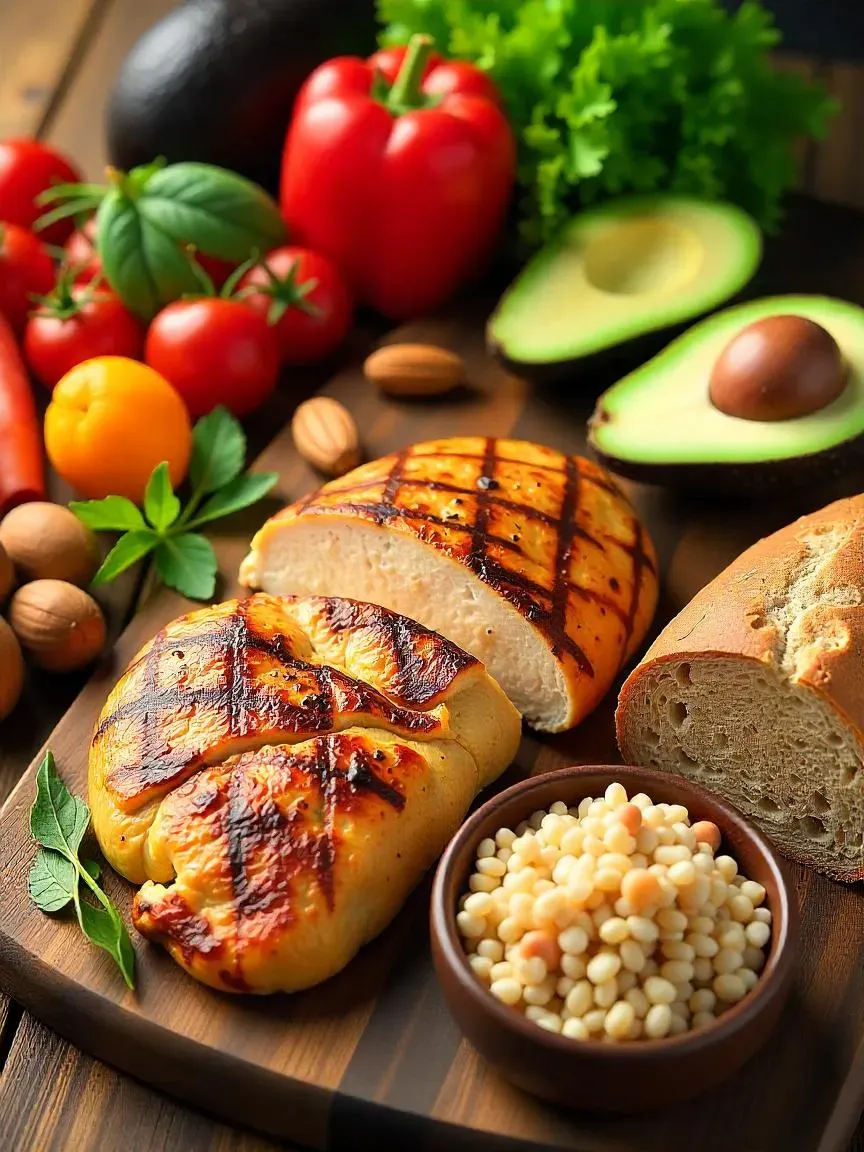
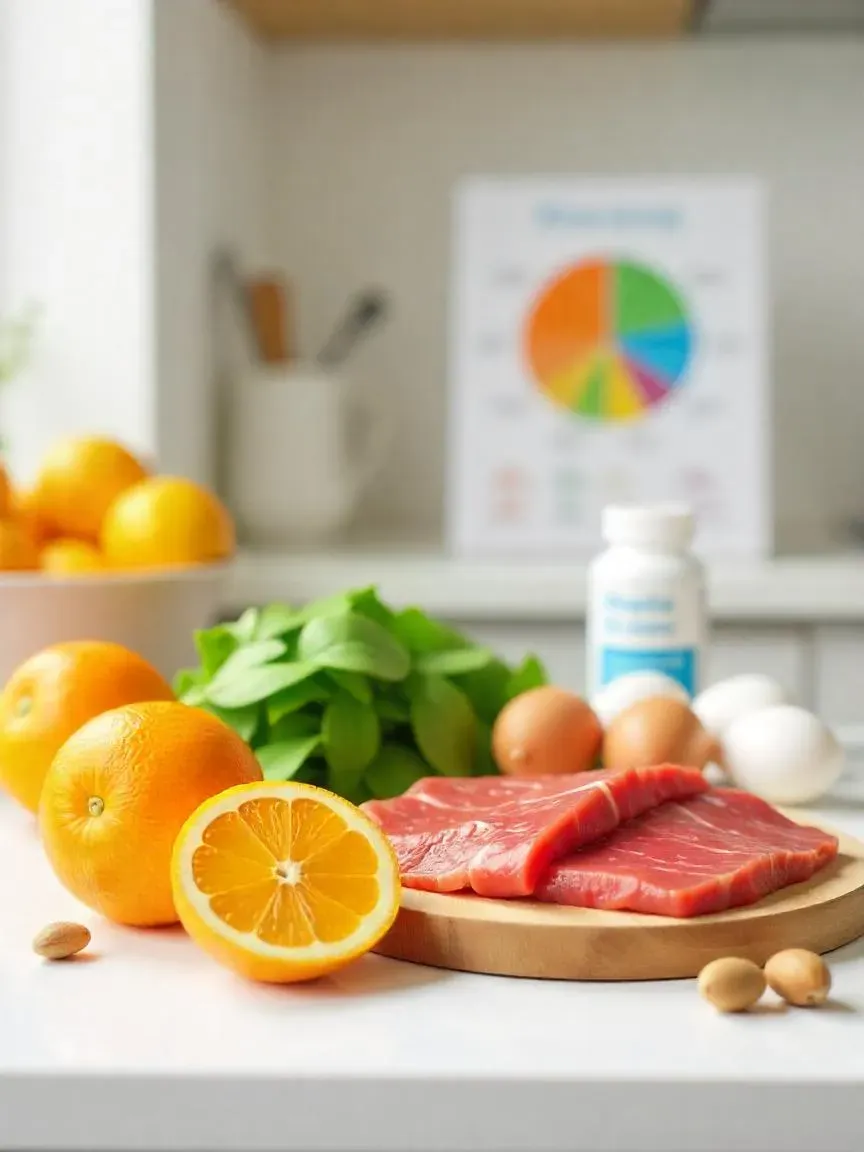

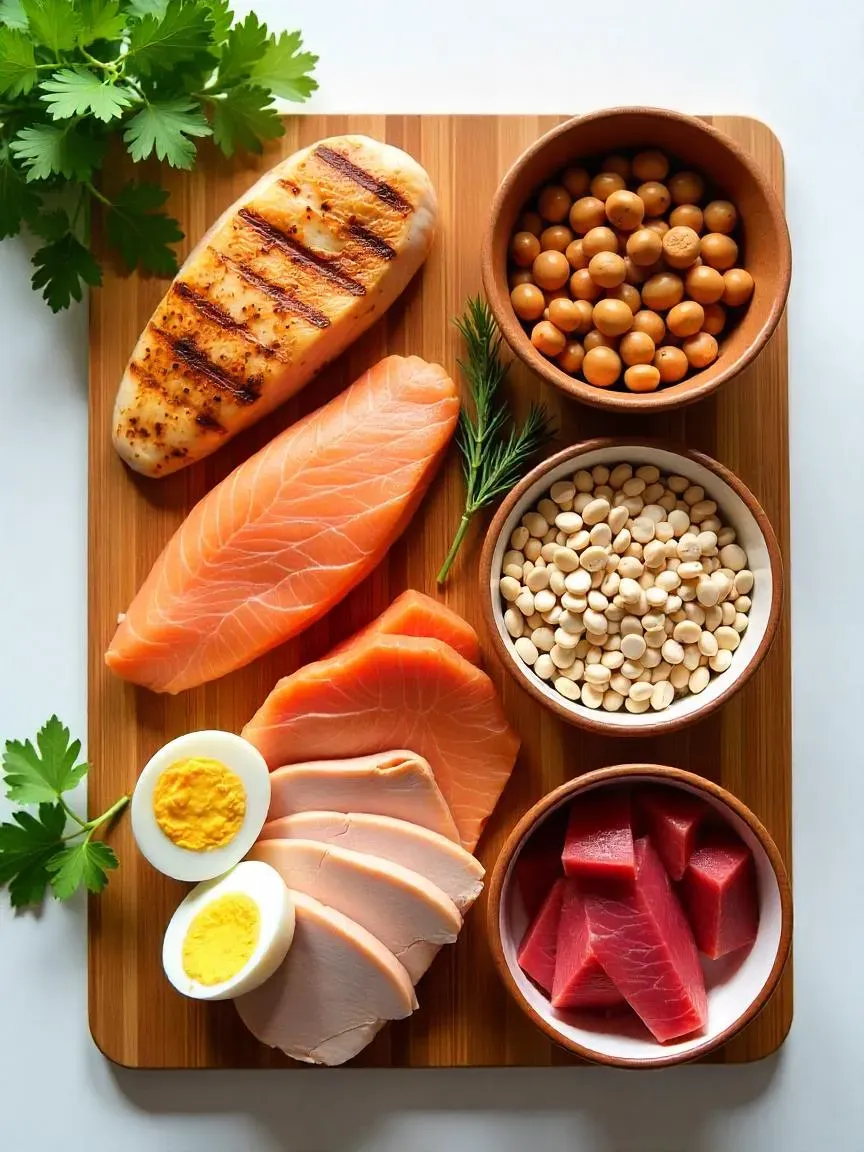
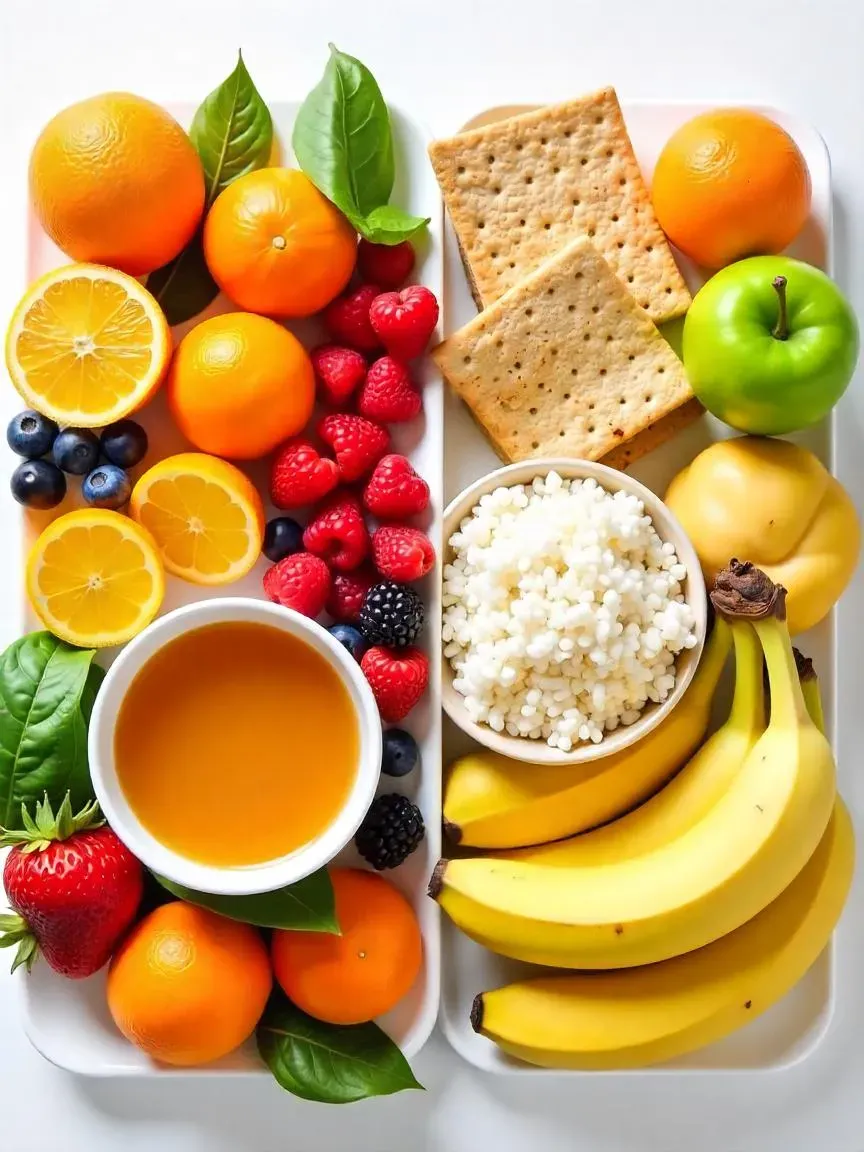
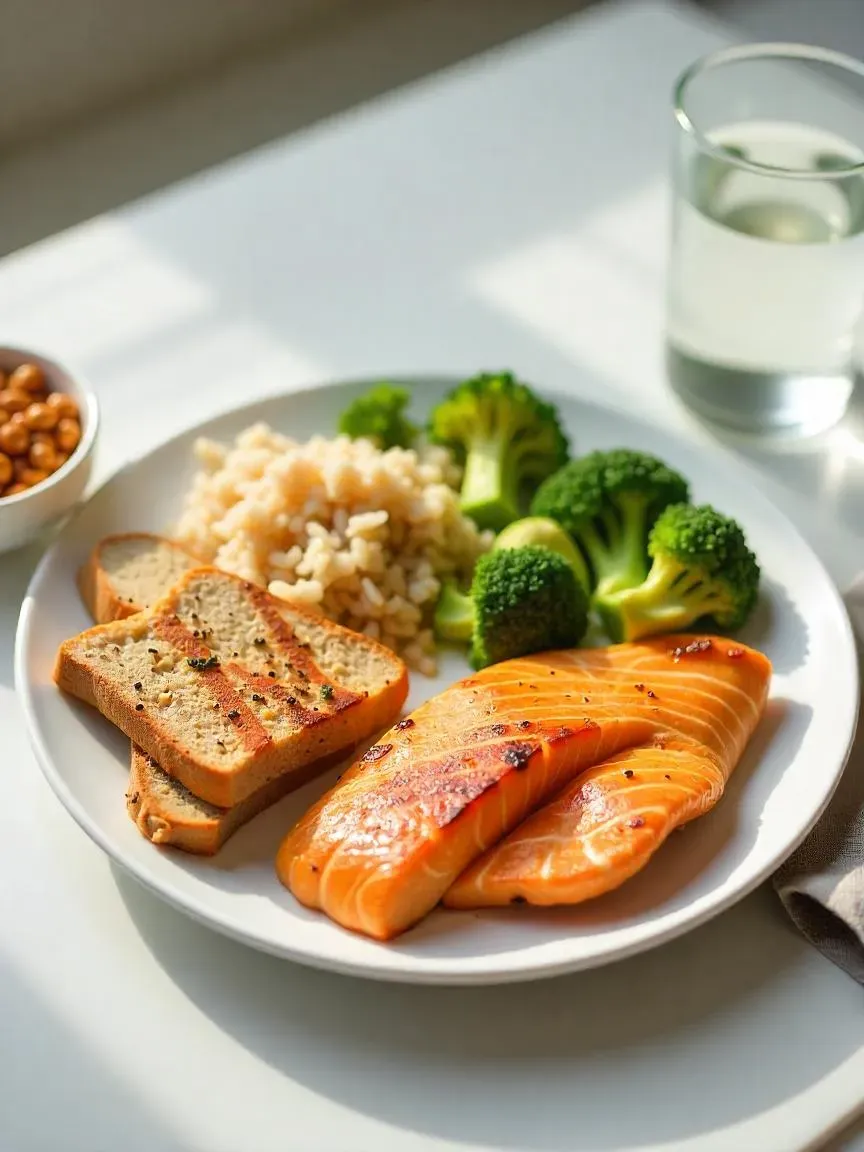


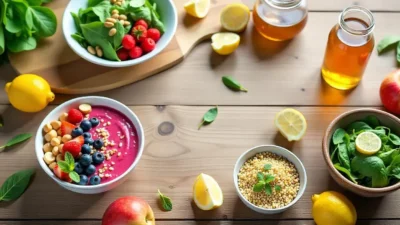
Wow, this is such a helpful and insightful post! I love that you’re highlighting the power of food in recovery. The connection between nutrition and healing is often overlooked, and your points about chicken soup, garlic, and honey tea are spot on. I’m definitely pinning this for future reference – thanks for sharing such valuable information and reminding us to nourish ourselves back to health!